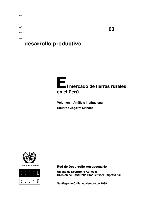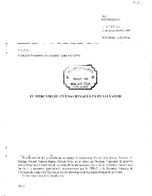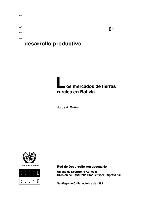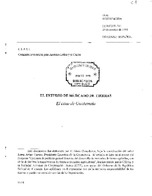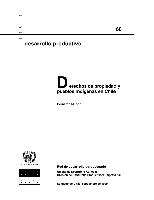El mercado de tierras rurales en el Perú
Resumen En este primer volumen se analizan de manera sistemática algunos de los elementos conformantes del 'Contexto institucional' en que funciona el mercado de tierras en el Perú. En la primera sección presentamos la evolución reciente de la legislación agraria, centrándonos en el impacto de la reforma agraria y los cambios a las limitaciones a los derechos de propiedad y operación del mercado de tierras en las últimas tres décadas. Describimos en mayor detalle el régimen jurídico de tierras vigente actualmente.

